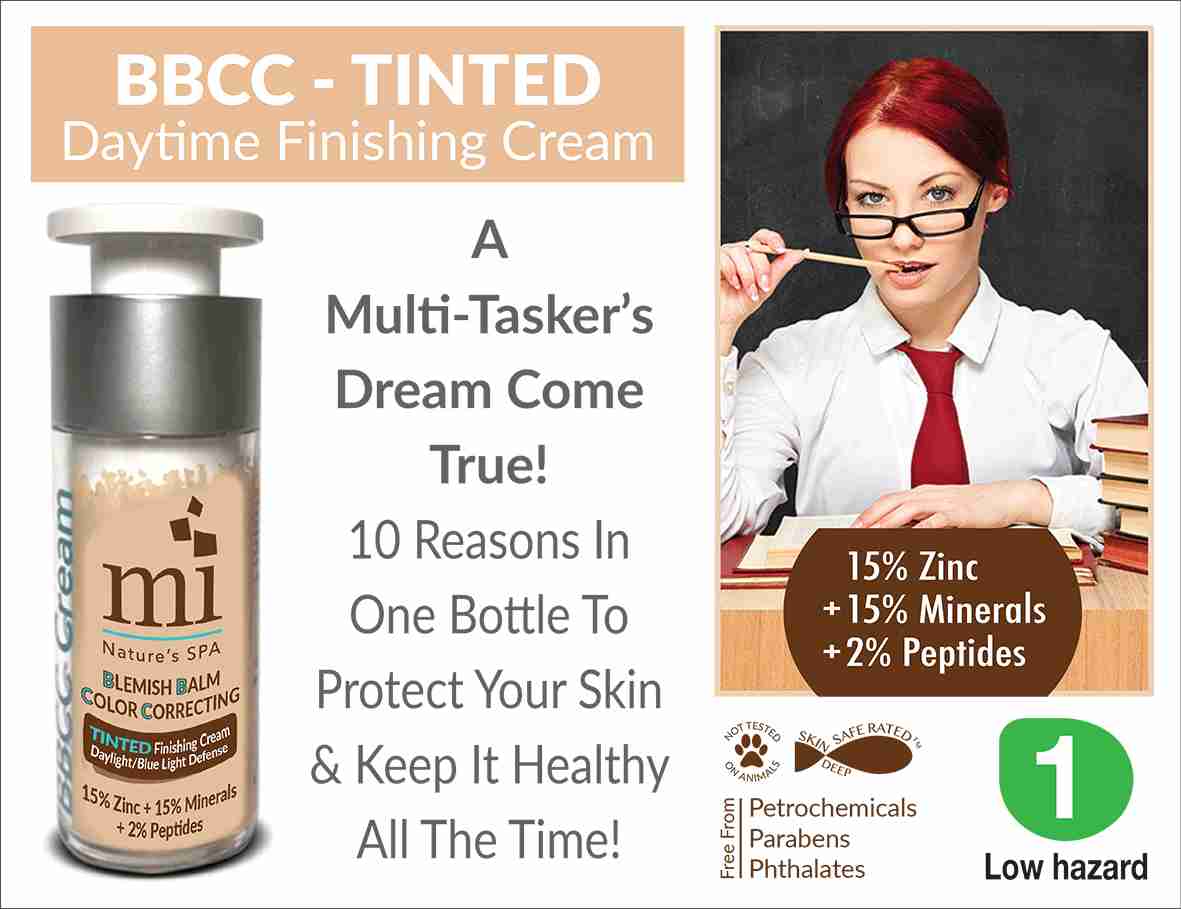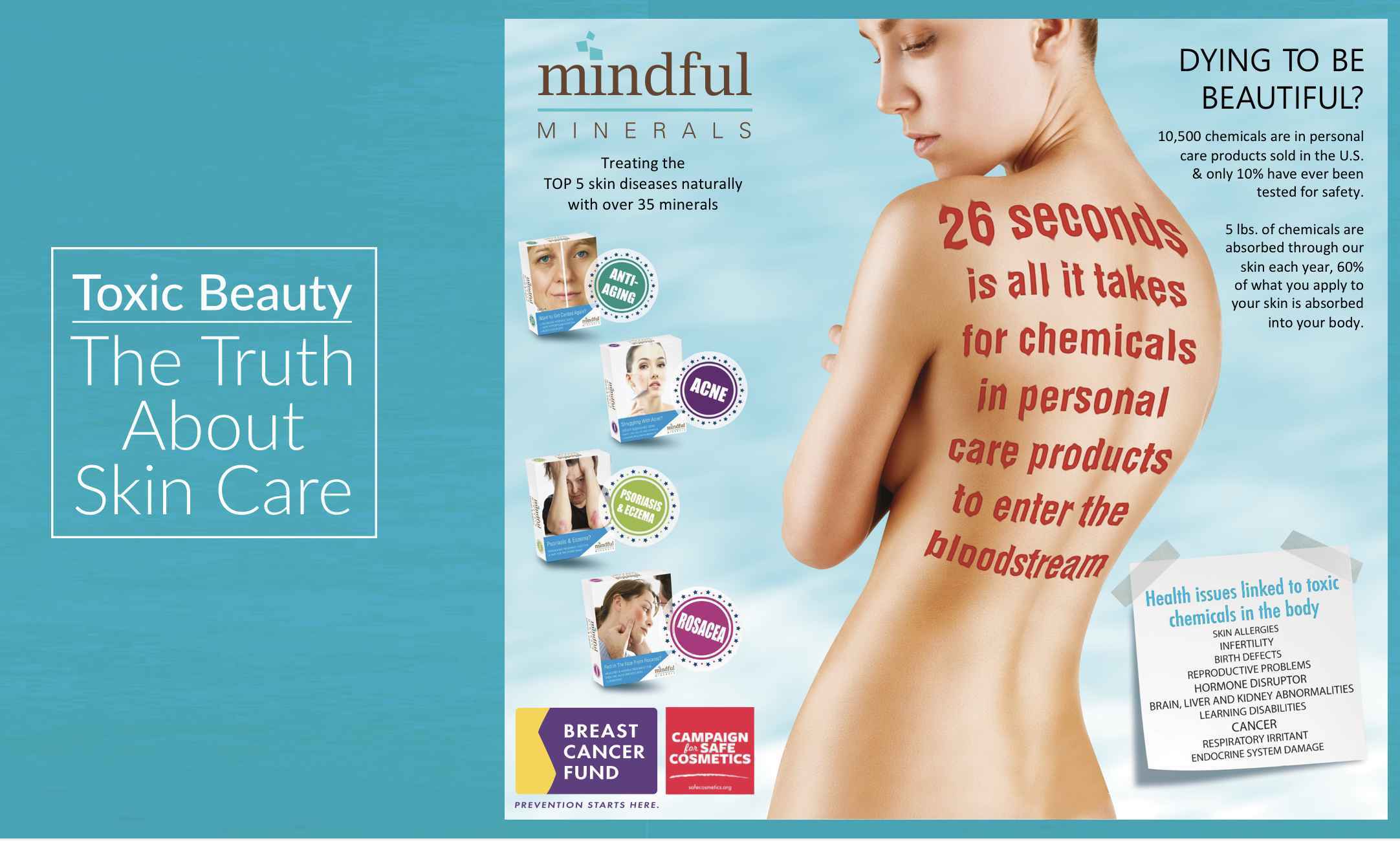


|
Julie Quick study of questionable ingredients! | |
|
|
Mary Motz Safe Foaming and mineral Soaps Most soaps contain synthetic fragrance, colorants, or ingredients that not only irritate skin but can have adverse health effects. Fragrance contains unnamed ingredients like phthalates which are disruptive to the endocrine system. Artificial dyes are petroleum-derived colorants that are unnecessary in soap. My rule has always been, Avoid antibacterial soaps which contain ingredients than can do more harm than good. So if you cant make your own soap, mindful minerals is the to go to brand! This is the skin care I am addicted to! I love the d SMOOTH exfoliating Bar! Also the olive oil soap comes in unscented or the natural scent but my favorite is the eucalyptus mud bar, my hubby uses it as a shampoo and shaving bar. These guys been around for centuries, they know their soap :) | |
Would you slather gasoline or diesel on your face?
How about liquid plastic, formaldehyde, or lead? Of course not! I encourage you to take a closer look at what you put on your skin. Many skincare products contain petroleum by-products, phthalates (a plasticizing agent), formaldehyde-releasing chemicals, and other toxins. You won’t see these ingredients listed in your skincare products because they’re hidden. So, I’m sharing what to look for to help you avoid some of the most toxic ingredients. Why avoid them? They are known hormone disruptors and carcinogens. Although manufacturers and the FDA claim these ingredients are safe in small amounts, I’m not convinced. My concern is that our environment exposes us to so many toxins. Why add more fuel to the fire (literally!)? Your skincare products don’t just sit on your skin; they penetrate it and wind up in your bloodstream. Thanks to evaporation, some ingredients even wind up in the air around you, meaning you inhale them.
………………………………………………………………………
1. ALUMINUM (Aluminum Chloride, Chlorohydrate and Ziconium, FD&C1, Green 3) Often found in: Antiperspirant, Deodorant and Makeup as a colorant. Why it may be harmful: The majority of breast cancer tumors are found in the area of the breast and lymph nodes in upper arm where most often exposed to aluminum from antiperspirant. - People with compromised kidney function warned to avoid aluminum. - Aluminum linked to increased risk for Alzheimer’s Disease. ……………………………………………………………………
2. BENZOYL PEROXIDE Often found in: Acne Medication Why it may be harmful: Possible tumor promoter. May act as a mutagen. Produces DNA damage in human cells. It is toxic by inhalation and it is an eye, skin and respiratory irritant. ……………………………………………………………………
3. COAL TAR FD&C Blue 1, Green 3 Often found in: Dandruff Shampoo, Anti-Itch Creams, Hair Dyes Why it may be harmful: It is a known carcinogen that can accumulate in the body. ……………………………………………………………………
4. NITROSOMINES (Not listed as an ingredient but is an impurity breakdown from these chemicals DEA, TEA, MEA) Often found in: Baby Shampoo, Sunless Tanner, Conditioner, Concealer, Pain Relief Salve Why it may be harmful: Possible human carcinogen linked to cancer, birth defects, developmental or reproductive toxicity, neurotoxicity. Evidence of endocrine disruption in low doses, readily absorbs and accumulates in the organs and brain. It is a skin and eye irritant.
………………………………………………………………………
5. SODIUM LAUREL SULFATE Dyes (SLS) & Sodium Laureth Sulfate (SLES) Often found in: 90% of all PCP’s that foam including: Baby Wash, Shampoo, Body Wash Why it may be harmful: Organ toxicity, developmental/reproductive toxicity, neurotoxicity, endocrine disruption, biochemical or cellular changes. Possible mutations and cancer. ……………………………………………………………………
6. FORMALDEHYDE (EDTA, DMDM Hydantoin & Urea, Diazolidinyl urea and Imidazolidinyl Urea) Often found in: Baby Wash, Nail Products, Hair Straighteners Why it may be harmful: It is a known human carcinogen. An eyes, nose and throat irritant that also may cause joint pain, allergies, depression, headaches and chronic fatigue and allergies.
……………………………………………………………………
7. HYDROQUINONE Often found in: Skin Lighteners & Brighteners, Fade Cream, Facial Cleansers, Conditioner Why it may be harmful: A chemical carcinogen and immunotoxicant. Developmental & reproductive toxicant that increases deep exposure to UVA/UVB rays to increase skin cancer risks. ……………………………………………………………………
8. PARABENS (Methyl, Propyl, Ethyl, Butyl, Isopropyl, and Ethyly- PREFIXES Parabens) Often found in: Food, pharmaceutical and cosmetic products. Why it may be harmful: Linked to cancer, endocrine disruption, reproductive toxicity, neurotoxicity, skin irritations and is a hormone disruptor. ……………………………………………………………………
9. PETROCHEMICALS (Petrolatum, Mineral Oil, Paraffin, PEG, PG-Propolyne Glycol, Butylene Glycol) Often found in: Lip Balm, Lipstick, Shampoo, Baby Care Products, Sunscreen, Foundation Why it may be harmful: May contain human carcinogens. Blocks the skin’s natural transport system trapping toxins in the body and restricting them from exiting through the skin. ………………………………………………………………………10. SUNSCREEN CHEMICALS (Avobenzone, Oxybenzone, Benzphenone, Ethoxycinnamate, PABA) Often found in: Sunscreen, Sun Block Why it may be harmful: Linked to cancer. May damange DNA and creates free radicals. Some dermatologists argue that these sunscreen chemicals are more cancer causing than sun damage! ……………………………………………………………………
11. TRICLOSAN Often found in: Hand Sanitizer, Toothpaste, Deoderant, Hand, Face and Body Cleansers Why it may be harmful: Hormone disruptor that effects brain and reproductive function. Contributes to antibiotic resistance in bacteria known to cause human infections. *US population ages 6 to 65 show residues of triclosan in over three-quarters of those tested. ……………………………………………………………………
12. PHTHALATES AKA: FRAGRANCE (phthalates is not listed as an ingredient but is a hidden ingredient of fragrance) Often found in: Anything with fragrance - Perfume, Air Freshener, Hairspray, Body Mist, Lotions… Why it may be harmful: Hormone disruptor, mimicking estrogen. May contribute to developmental, fertility, liver & kidney damage, birth defects and early breast development in boys and girls 97% of Americans tested by the US Centers for Disease Control have Diethyl Phthalate (DEP) in their blood streams. More than 70% of PCP’s in the U.S. contain Phthalates that link directly to birth defects and infertility. Phthalates are a hidden ingredient of fragrance. Fragrances are considered “trade secrets” so companies don’t have to reveal the phthalates on their labels which can be a cocktail of up to 3,000 chemicals!










